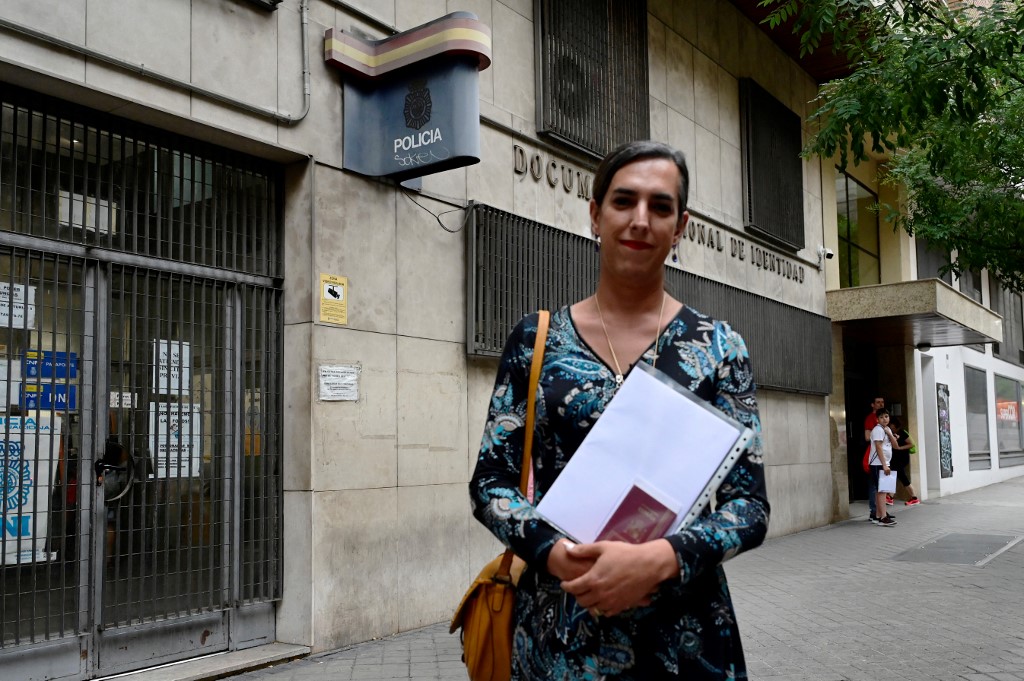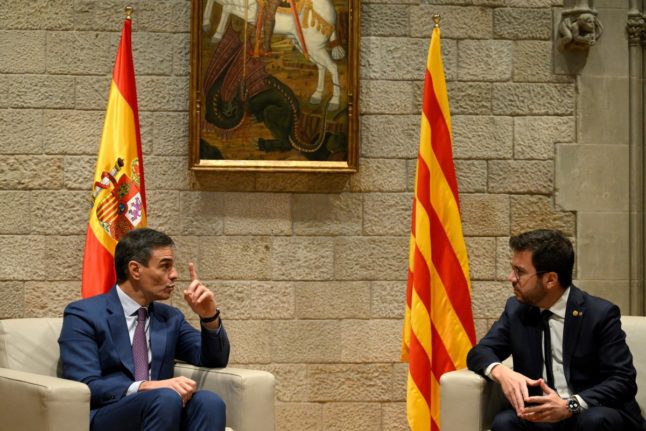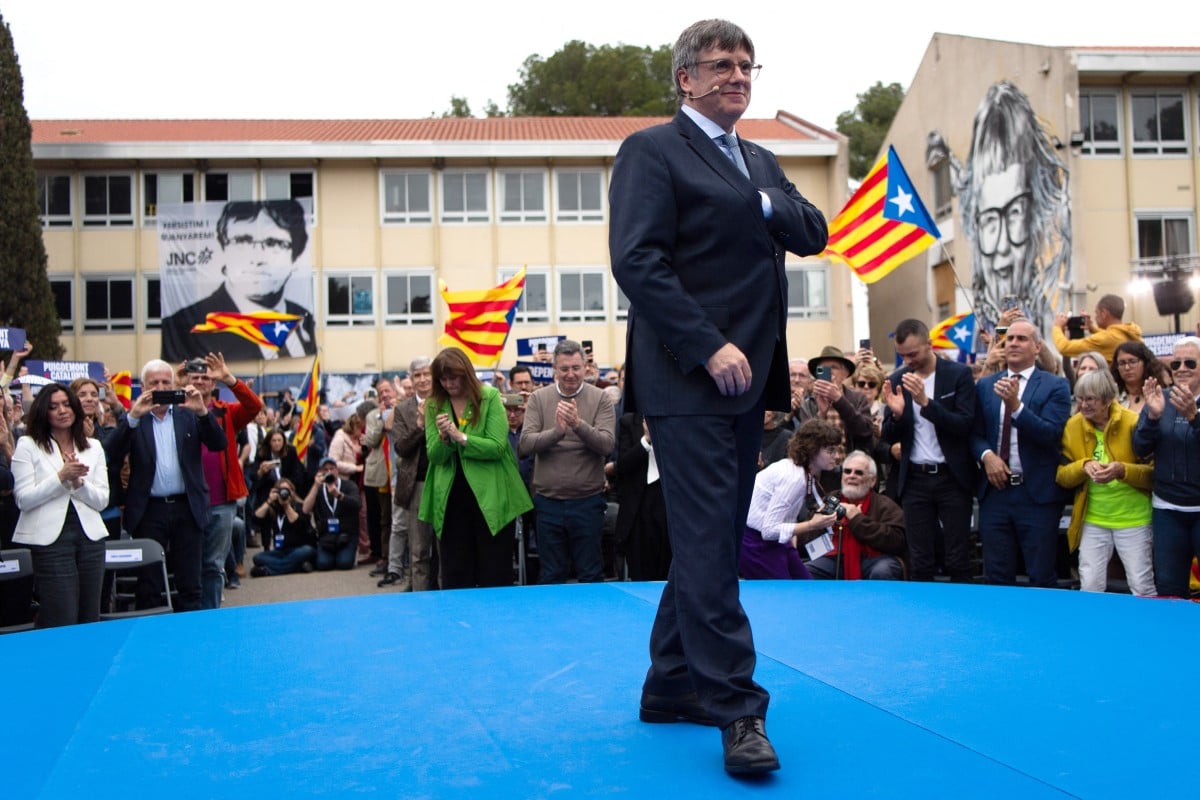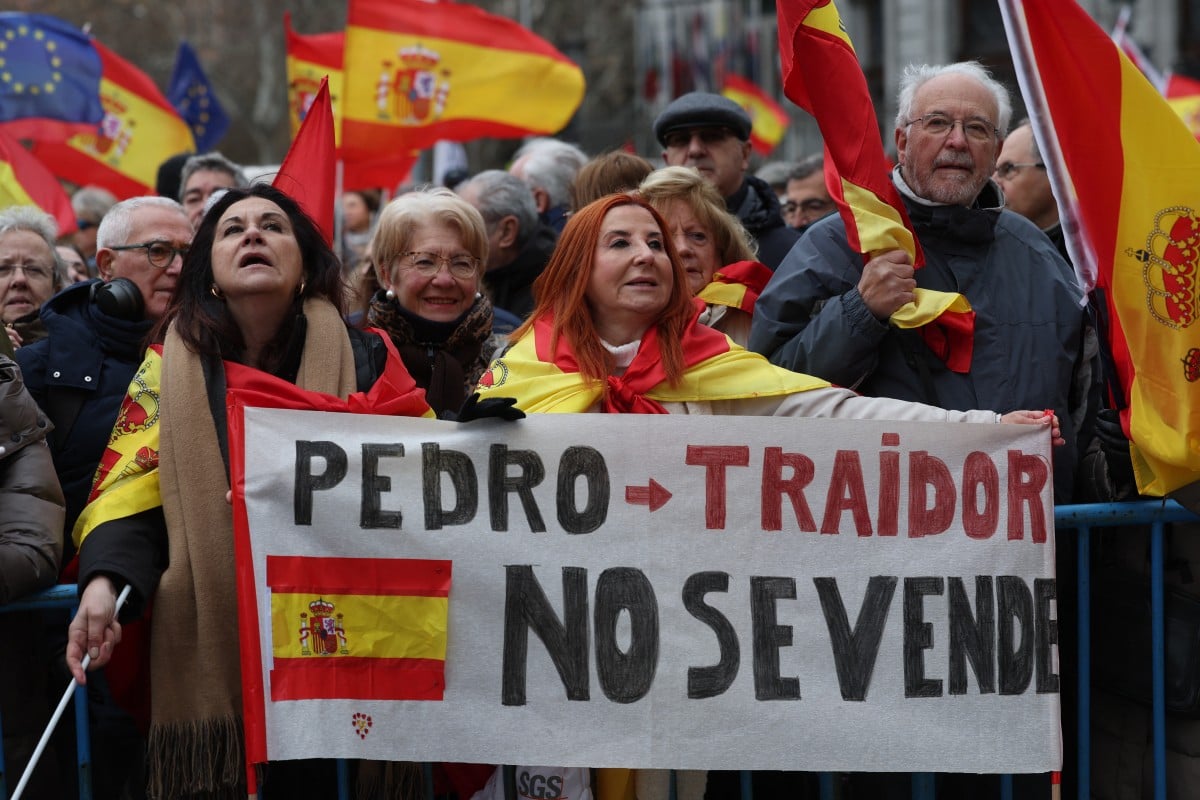Wearing a demure navy blue dress, Arruti has felt like a girl since the age of eight, she told AFP in her garden in Ponte Caldelas, a small village near Spain’s border with northern Portugal.
After changing her name and starting hormone treatment, she applied to change gender on her ID card thanks to a law passed in February by Spain’s left-wing government.
The legislation lets anyone 16 and over make the switch on the basis of a simple statement.
READ MORE: Spain approves trans law that allows easy gender change on ID
But the right-wing Popular Party (PP) has promised to alter the law if it wins the July 23rd snap elections, although polls suggest it won’t win an absolute majority and will need support from the far-right Vox to govern.
Vox is even more opposed to the law, which encompasses a range of LGBTQ rights.
Wearing a pendant necklace in the pale blue, pink and white of the trans collective, Arruti says she’s “worried” about such an alliance, which is already a reality in many places following a right-wing victory in May 28th local and regional elections.
“That would be a serious step backwards” for trans rights, she said.
In late June, PP leader Alberto Núñez Feijóo lashed out at the so-called “trans law”, telling Onda Cero radio it was “an attack on young people and on parental authority”.
He claimed it made it “easier to legally change sex than to pass a university entrance exam or get a driving licence”.

Not raising the rainbow
Since the local and regional polls, some towns or regions controlled by the PP and Vox caused uproar by not putting up the traditional rainbow flags following far-right pressure during the highly visible Pride marches in June.
And in Madrid, which hosted one of Europe’s largest Pride marches on July 1st, Vox hung a giant banner of a hand throwing bits of paper into a bin, each bearing a symbol, including the rainbow flag of the LGBTQ collective.
READ ALSO: Ten things you need to know about Spain’s far-right Vox party
“The right and the ultra-right are spreading messages of hate and threatening to erase us from public life,” said Alicia García Raboso, a 42-year-old trans woman at the march.
Valeria Carrión Álvarez, a 47-year-old financial analyst, does not rule out leaving Spain if there is a setback in transgender rights.
If the PP wins and “makes it difficult to access medical treatment (such as hormone therapy)… that could be a reason for me to leave Spain,” she said.

Rise in discrimination offences
Between 2020 and 2022, interior ministry figures show crimes targeting sexual orientation or gender rose by 65.7 percent in Spain, a country known for being very tolerant of LGBTQ issues and which legalised same-sex marriage almost 20 years ago.
For Uge Sangil, head of FELGTBI+, Spain’s largest LGBTQ organisation, the figures reflect an increase “in hate speech towards the LGBTQ collective” since Vox entered parliament in 2019 as the third largest party.
“When there is an increase in hate speech against vulnerable groups, hate crimes also increase,” Sangil told AFP.
For Álvarez, the problem is not so much the political discourse but how it reflects changing social attitudes, pointing to a “normalisation of far-right opinions everywhere, from bars to the office coffee machine… and even family gatherings”.
Sangil says the situation is very worrying.
“Although we are brave and resilient, we are also worried and afraid. We do not want to go back into the closet,” the FELGTBI+ leader said.





 Please whitelist us to continue reading.
Please whitelist us to continue reading.
Member comments